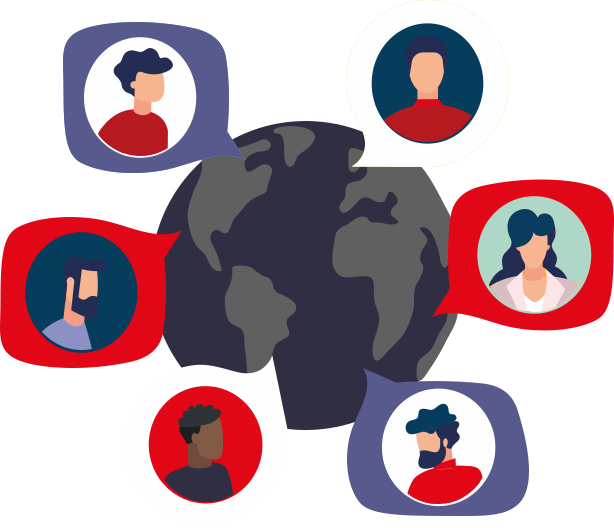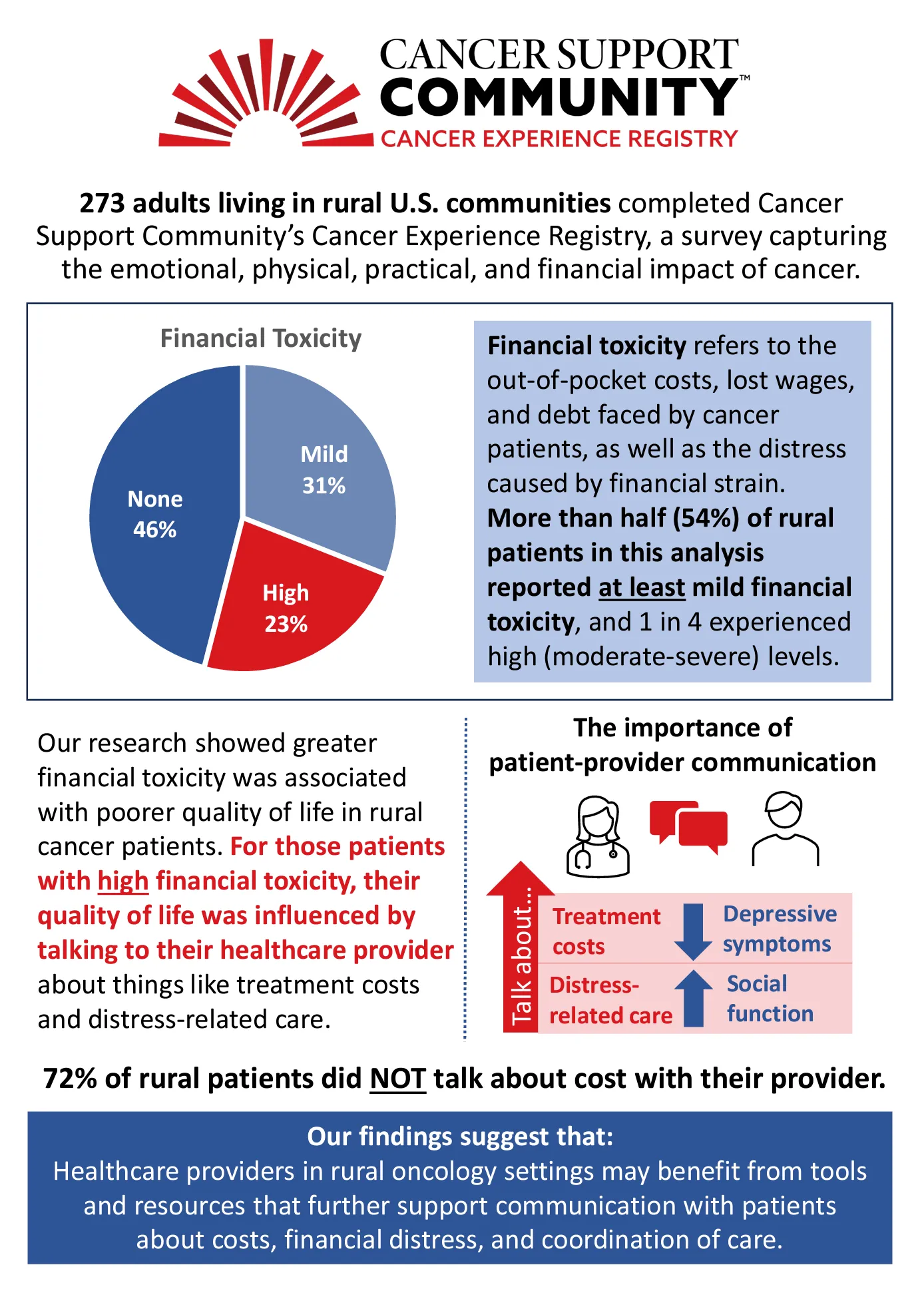
Publications & Presentations
The Cancer Support Community is a leader in research on the patient, survivor, and caregiver experience. Our work appears in posters and presentations shared at professional conferences, published articles in preeminent peer-reviewed journals, educational materials for patients and caregivers, and comprehensive research reports to help inform cancer care and patient advocacy.

Use the search filters below to discover our research findings on diverse topics related to patient and caregiver quality of life, including:
- Psychosocial well-being and symptom management
- Patient-provider communication
- Treatment options
- Patient advocacy
- Financial toxicity and other barriers to health equity
- Experiences and perspectives on precision medicine
CancerSupportSourceTM‐Caregiver is a distress screening, referral, and support program designed to identify the unmet needs of cancer caregivers and link caregivers to desired resources and support. This study refined and finalized the CancerSupportSource‐Caregiver screening measure and examined its psychometric properties.
This analysis explores the experience of metastatic breast cancer patients and survivors with a wellness program implemented by Unite for HER (UFH), a national non-profit organization that delivers integrative therapies and support services.
The COVID-19 pandemic heightened the psychosocial impact of a cancer diagnosis as patients face concerns about the risk of infection and serious disease and uncertainties about the impact on their treatment. We conducted an online survey and focus groups with patients to examine their experiences with cancer care during the pandemic.
Patients undergoing cancer treatment during the COVID-19 pandemic have experienced stress and uncertainty with respect to disruptions in cancer care and COVID-19 related risks. We examined whether clinicians’ responsiveness to patients’ uncertainty and difficult emotions were associated with better health and well-being.
In this report, Charles River Associates (CRA) and Cancer Support Community (CSC) examine the extent to which policies associated with long-term support, well-being, and treatment innovation for triple negative breast cancer (TNBC) patients can exacerbate or ameliorate inequities in TNBC health outcomes among at-risk, under-resourced populations in the United States (US).
In this qualitative study, we explored MBC patients’ and partners’ experiences of sexual and intimacy-related changes and concerns, coping efforts, and information needs and intervention preferences, with a focus on identifying how the context of MBC shapes these experiences.
TOPICS: (Clinical Trials, Education & Empowerment, Mental Health & Psychosocial Support, Treatment Decision Making)
About 1 in 5 people diagnosed with breast cancer (BC) will be considered HER2+, and nearly half of those diagnosed with HER2+ BC develop brain metastases. Brain metastases increase the risk of impairments, faster disease progression, and shorter survival time. Despite the significant burden faced by people with HER2+ BC living with brain metastases (BMBC), there is little research available characterizing the unique experiences of this community.
Myelodysplastic syndromes (MDS) are particularly costly, with patients facing an estimated burden of nearly $130,000 in the first two years following diagnosis.
In blood cancers like lymphoma, patients often feel their cancer is invisible to others, and may have less contact with the healthcare team during periods of prolonged remission. Further, lymphoma patients experience levels of distress, anxiety, and depression that can impact participation in treatment or hinder treatment decision-making and health-related quality of life.
